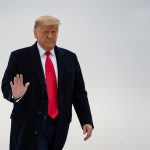Ukrainian President Volodymyr Zelenskyy appears more eager than ever to bring Western boots to the muddy fields of Ukraine, suggesting the deployment of Western troops as a means of securing the country amid its relentless tussle with Russia. Zelenskyy hinted that this military maneuver could pave the way for Ukraine’s NATO membership, a notion that sounds more like wishful thinking than a viable strategy, especially with a war raging on multiple fronts.
In a move that feels like a high-stakes game of chess, Zelenskyy insisted that before any of this could materialize, clarity was required on Ukraine’s timeline for joining the European Union and NATO. It seems a bit rich for him to put the cart before the horse when Ukraine’s sovereignty is still being tested daily by Vladimir Putin’s onslaught. One must wonder if Zelenskyy thinks a contingent of Western troops could somehow wave a magic wand to solve all his problems, forgetting that NATO countries are skittish about stepping into an escalating conflict without clear borders—and let’s not forget, Russia currently claims about 20% of Ukraine.
While U.S. President-elect Donald Trump aims to facilitate a ceasefire, he recently met with Zelenskyy to discuss peace—though it appears that Zelenskyy is already plotting his diplomatic strategy with current President Joe Biden. This begs the question: if Trump’s the one crafting a peace proposal, is Zelenskyy playing both sides or simply hedging his bets in case the political winds shift? Perceptions of decision-making power aside, Trump’s ability to take action remains hampered until he officially steps into office.
Over in Europe, opinions on sending troops seem to diverge dramatically. French President Emmanuel Macron’s proposal has fallen on deaf ears, with both Germany and Poland immediately dismissing the idea. The anxiety over further escalating tensions with Russia overshadowed Macron’s grand plans, showing a deep-seated hesitance to risk World War III over a territory embroiled in confusion and conflict. Maybe they should ponder whether sticking their heads in the sand would be a better detachment strategy—after all, ignorance is bliss when it comes to messy global affairs.
Zelensky Open to Western Troops Providing Security to End War in Ukrainehttps://t.co/IDPRuc0sfp
— James Parker (@JamesPa45978861) December 9, 2024
The narrative of Ukraine being “on an irreversible path” to NATO membership has gained traction, particularly from NATO’s July summit in Washington. However, there’s a clear understanding that inviting a country actively at war poses significant dangers. If the alliance’s goal is mutual security, who will be defending whom when the time comes? With Zelenskyy’s statement about Russia’s aerial bomb barrages, it seems Ukraine does indeed want to bring an end to the bloodshed, but the path they are envisioning feels like a long and treacherous one fraught with geopolitical landmines.
Amidst the back-and-forth on military support, it’s fascinating to watch political players like Germany’s Friedrich Merz positioning themselves for the upcoming election. Merz is clearly drawing a line in the sand against the current Chancellor Olaf Scholz, advocating for sending offensive military aid, including long-range cruise missiles—and challenging the one-handed approach the current German administration maintains. As the political stakes rise, the question remains: will nations put aside their reservations and stake a firmer claim in the fight for Ukraine, or will they continue to debate while the situation on the ground grows ever more dire?




